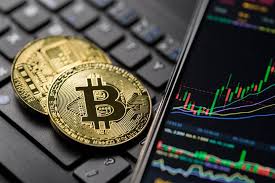
Understanding Crypto Trading Security
In the rapidly evolving world of cryptocurrency, maintaining your security while trading is paramount. With increasing incidents of hacking and fraud, individuals must be vigilant in securing their assets. This article explores various aspects of Crypto Trading Security and offers guidance on best practices.Crypto Trading Security visit website From choosing secure wallets to employing strategic trading techniques, we will cover the vital elements of safely navigating the crypto trading landscape.
The Importance of Security in Crypto Trading
As cryptocurrencies gain popularity, their appeal also attracts malicious actors. Understanding the importance of securing your investments is crucial. In the crypto realm, a single oversight could lead to significant losses. Unlike traditional banking systems that offer protections against fraud or theft, cryptocurrencies operate on a less regulated basis, placing the onus of security directly on the user.
Common Threats in Crypto Trading
- Phishing Attacks: These scams trick users into providing sensitive information by masquerading as legitimate exchanges or wallets.
- Exchange Hacks: Centralized exchanges can be vulnerable to hacking; several high-profile breaches have led to the loss of millions.
- Malware: Malware designed to steal keys or credentials can be installed unknowingly through deceptive downloads or links.
- Sim Swap Attacks: Attackers can override your mobile number to gain access to your accounts through two-factor authentication.
Best Practices for Enhancing Your Crypto Trading Security
1. Use Hardware Wallets
Hardware wallets are physical devices that store your private keys offline. They are among the safest methods of storing cryptocurrencies since they are not connected to the internet, reducing exposure to potential hacks. Popular hardware wallets include Ledger Nano S, Trezor, and KeepKey.

2. Enable Two-Factor Authentication (2FA)
Always enable 2FA on your accounts. This adds an extra layer of security because it requires a second form of verification, usually a code sent to your mobile device. Using apps like Google Authenticator, Authy, or even hardware keys via FIDO2 can significantly enhance your security.
3. Conduct Regular Security Audits
Regularly review your accounts and wallets for any suspicious activity. Check transaction history, which will help identify unauthorized transactions quickly. Furthermore, ensure that you’re using strong, unique passwords that are regularly updated.
4. Secure Your Computer and Network
Always ensure that your devices are secure. Use antivirus software, keep your operating system updated, and employ a VPN when accessing your wallets or trading platforms. Avoid using public Wi-Fi for transactions; instead, use a trusted and secure network.
5. Stay Informed
Knowledge is power. Stay updated about potential security threats, changes in the regulatory landscape, and updates from the exchanges you use. Following reputable crypto news sources and joining forums can provide necessary insights into evolving threats.
Choosing the Right Exchange

The exchange you choose can significantly impact your trading security. Always opt for platforms with a strong reputation for security, positive user feedback, and those that employ advanced security protocols like cold storage for assets. Some leading exchanges also offer insurance for stored assets, adding a layer of safety.
What to Look for in an Exchange:
- Security audits and overall transparency
- Insurance policies for assets
- History of hacks or security issues
- Robust 2FA and withdrawal whitelists
The Role of Decentralized Finance (DeFi)
While centralized exchanges hold risks, decentralized finance platforms are gaining traction for their potential security benefits. DeFi platforms operate on smart contracts, removing the need for a central authority and allowing users to maintain full control over their assets.
However, DeFi systems also come with unique risks, including bugs in smart contracts and the need for a good understanding of the protocols in place. Users should be aware of these risks and carry out thorough research and due diligence before engaging in DeFi trading.
Conclusion
Crypto Trading Security is a vital aspect of participating in the cryptocurrency market. As threats continue to evolve, it is crucial to adopt a multi-faceted approach to securing your assets. By implementing hardware wallets, enabling two-factor authentication, staying informed about new threats, and verifying the security of exchanges and DeFi protocols, traders can greatly mitigate the risks involved in crypto trading. The more proactive you are about your security, the safer your trading experience will be.
Investing in cryptocurrency can be a profitable venture, providing you take the necessary steps to protect your investments. Remember, in the world of crypto trading, knowledge and preparedness are your best defense.
Laisser un commentaire